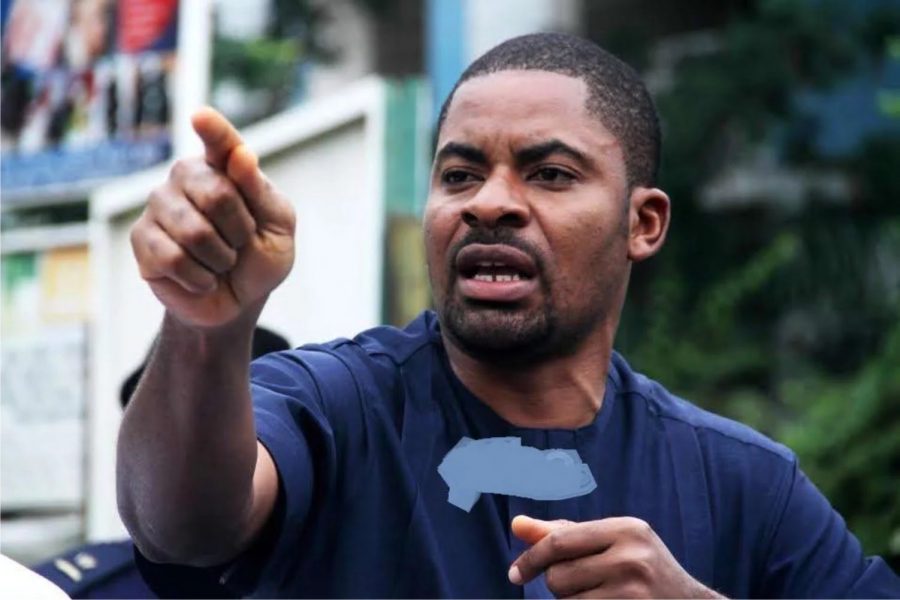The President of the Senate, Ahmad Lawan on Monday said resources provided to tackle COVID-19 in the 2022 budget would be closely monitored to ensure prudence of its use.
Lawan said this in Abuja while declaring open a National Summit on COVID-19 with the theme: ‘End the Pandemic and Build Back Better.”
The summit was organised by the Presidential Steering Committee(PSC) on COVID-19.
He told the participants at the summit that “in the 2022 appropriation, whatever is necessary will be provided for Nigeria to continue to fight the pandemic and beyond it.
“But there is a caveat, that those who will be given those funds need to provide the kind of prudence that is necessary – the economy, the efficiency in the deployment and application of those resources.
“And I will urge our Committees who have been working very hard and very closely with the PSC to ensure very strict and rigorous scrutiny and oversight of our funds in 2022 when we can provide them to the Federal Ministry of Health and its agencies.”
Lawan assured Nigerians that “members of the National Assembly and other political leaders in the country take the health of Nigerians very seriously and we will continue to be alive to our responsibility to ensure that our citizens are protected.
The Senate President also urged the relevant health authorities to do more to ensure that the vaccine hesitancy is minimised or eliminated if possible.
He commended the PSC for the great work it had done in effectively coordinating and mounting a formidable national response to the emergent global public health threat.
Lawan also paid tribute to patriotic and gallant health personnel who had sacrificed so much to fight against the pandemic stressing that Nigeria would remain indebted to them.
“The 9th National Assembly, under my leadership has equally played a critical role in supporting the Executive Arm of Government to respond frontally through the passage of the Quarantine Act 2020 to mitigate the effects of COVID – 19 on our citizens and the economy.
“The Act provided and regulated the imposition of quarantine and made other provisions for preventing the introduction, spread and transmission of dangerous infectious diseases in Nigeria.
“The NASS proactively reviewed the Medium-Term Expenditure Framework (MTEF) and the 2020 national budget to sufficiently fund the national response to the pandemic and to provide economic stimulus packages for Nigerians.
“In addition, after meticulous scrutiny, the Assembly gave approvals for various loans requested by the Executive to fund the 2020 national budget.
“Members of the Senate gave up 50 percent of their monthly salaries to provide relief materials for Nigerians to cushion the effect of the pandemic while some distinguished members of the Assembly procured and distributed various COVID – 19 relief materials to their constituencies.
“The oversight functions of the Assembly necessitated the proper scrutiny of how the aforementioned funds were expended and also monitored strict compliance with resolutions concerning the fair and equitable distribution of palliatives to the vulnerable.
“The Executive was engaged on the implementation of the Social Intervention Programme (SIP) in response to the needs of the citizenry.
“The emergence of the Omicron variant of the virus points to the fact that the pandemic is yet to be over, hence, we should not rest on our oars in fighting the pandemic.
“However, our recent experience has also shown that outbreak of diseases affects not only the health sector but also the social-economic sector of the nation.
“To this end, there is a need for a continuous multisectoral approach that integrates multiple work plans and collaboration to establish a sustainable biosecurity framework for Nigeria.
“As we are working towards ending the pandemic and building back a better Nigeria, an all-inclusive approach which focuses on addressing issues relating to the economy, health, housing, social security, infrastructure, etc. should be employed.
‘Engagements with critical stakeholders such as; constituencies, Civil Society Organisations (CSOs), Faith-Based Organisations (FBOs) are critical to achieving this goal,” Lawan said




